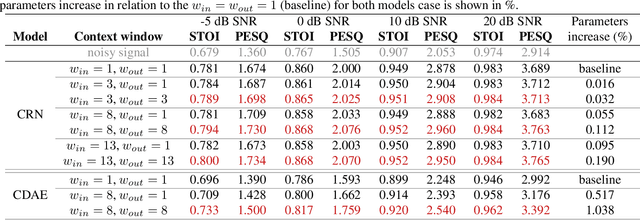Johan David
Unsupervised Variational Acoustic Clustering
Mar 24, 2025



Abstract:We propose an unsupervised variational acoustic clustering model for clustering audio data in the time-frequency domain. The model leverages variational inference, extended to an autoencoder framework, with a Gaussian mixture model as a prior for the latent space. Specifically designed for audio applications, we introduce a convolutional-recurrent variational autoencoder optimized for efficient time-frequency processing. Our experimental results considering a spoken digits dataset demonstrate a significant improvement in accuracy and clustering performance compared to traditional methods, showcasing the model's enhanced ability to capture complex audio patterns.
Target Speaker Selection for Neural Network Beamforming in Multi-Speaker Scenarios
Mar 24, 2025



Abstract:We propose a speaker selection mechanism (SSM) for the training of an end-to-end beamforming neural network, based on recent findings that a listener usually looks to the target speaker with a certain undershot angle. The mechanism allows the neural network model to learn toward which speaker to focus, during training, in a multi-speaker scenario, based on the position of listener and speakers. However, only audio information is necessary during inference. We perform acoustic simulations demonstrating the feasibility and performance when the SSM is employed in training. The results show significant increase in speech intelligibility, quality, and distortion metrics when compared to the minimum variance distortionless filter and the same neural network model trained without SSM. The success of the proposed method is a significant step forward toward the solution of the cocktail party problem.
Spectral Masking with Explicit Time-Context Windowing for Neural Network-Based Monaural Speech Enhancement
Aug 28, 2024


Abstract:We propose and analyze the use of an explicit time-context window for neural network-based spectral masking speech enhancement to leverage signal context dependencies between neighboring frames. In particular, we concentrate on soft masking and loss computed on the time-frequency representation of the reconstructed speech. We show that the application of a time-context windowing function at both input and output of the neural network model improves the soft mask estimation process by combining multiple estimates taken from different contexts. The proposed approach is only applied as post-optimization in inference mode, not requiring additional layers or special training for the neural network model. Our results show that the method consistently increases both intelligibility and signal quality of the denoised speech, as demonstrated for two classes of convolutional-based speech enhancement models. Importantly, the proposed method requires only a negligible ($\leq1\%$) increase in the number of model parameters, making it suitable for hardware-constrained applications.
 Add to Chrome
Add to Chrome Add to Firefox
Add to Firefox Add to Edge
Add to Edge